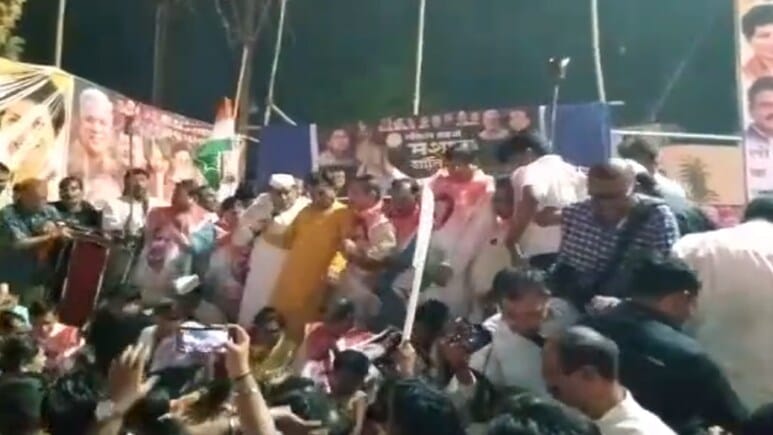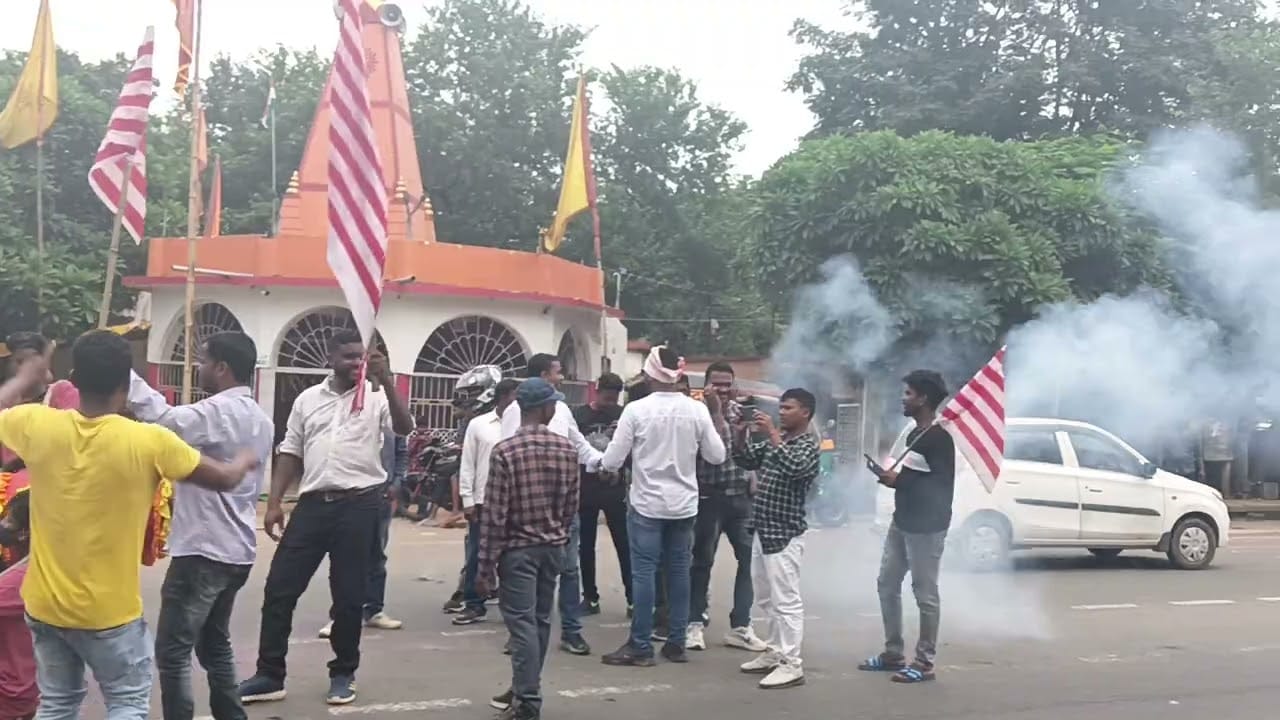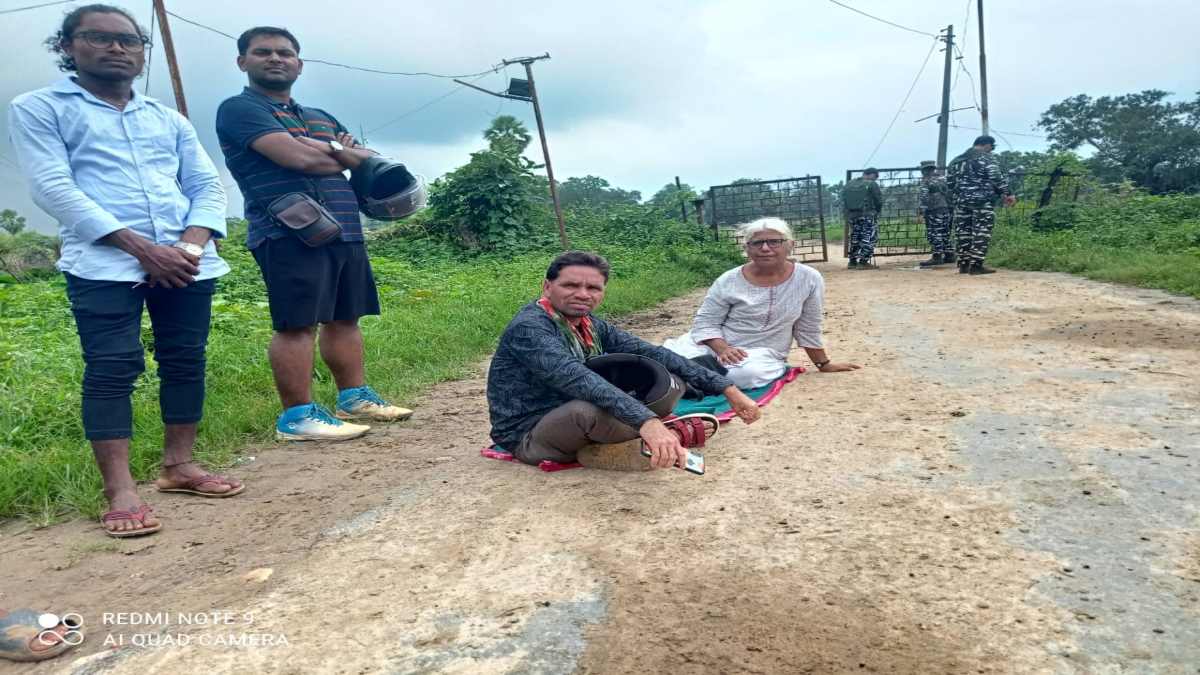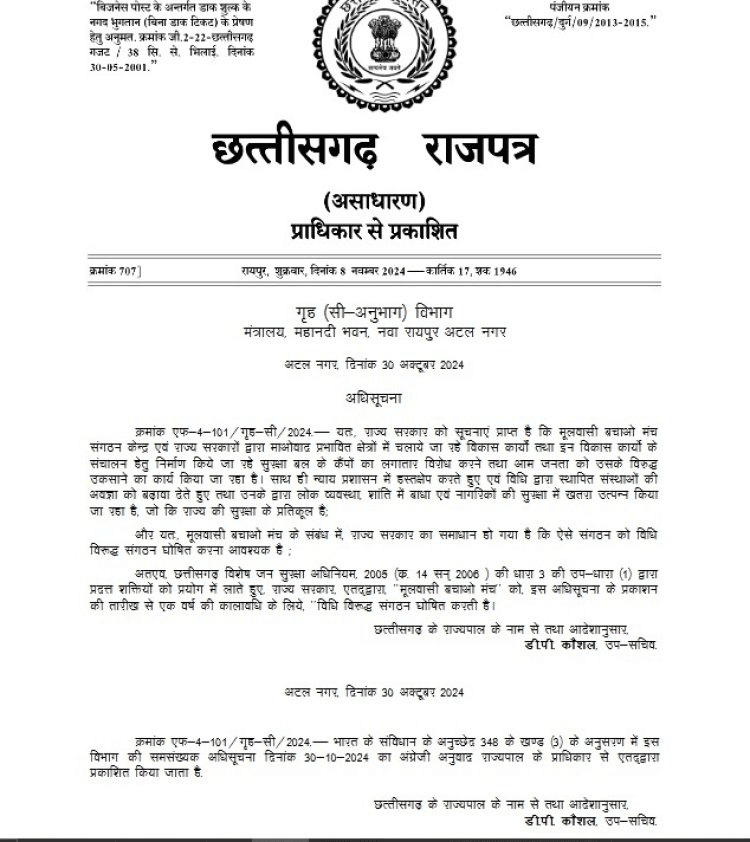छत्तीसगढ़ में मूलवासी बचाओ मंच पर प्रतिबंध

Executive Summary

The recent ban on the “Mulawasi Bachao Manch” (MBM) in Chhattisgarh has sparked significant controversy and raised crucial questions about indigenous rights, freedom of expression, and the role of civil society in India. This article delves into the complexities surrounding this decision, examining the arguments for and against the ban, exploring the potential impact on indigenous communities, and analyzing the legal and ethical ramifications. We will dissect the key aspects of this situation, providing a comprehensive overview to help readers understand the multifaceted nature of this critical issue.

Introduction
The Chhattisgarh government’s decision to ban the Mulawasi Bachao Manch (MBM), a platform advocating for the rights of indigenous communities, has sent shockwaves through the state. This action has ignited a debate concerning the delicate balance between maintaining public order and safeguarding fundamental rights. The ban raises serious concerns about the potential for suppressing dissent and limiting the agency of marginalized groups. Understanding the context surrounding this decision is crucial to evaluating its implications and advocating for effective solutions.
Frequently Asked Questions (FAQs)
- Q: What is the Mulawasi Bachao Manch (MBM)?
A: The MBM is a civil society organization that actively works to protect the rights and interests of indigenous communities in Chhattisgarh. They focus on issues such as land rights, forest rights, and cultural preservation, often advocating for these through protests and public awareness campaigns.
- Q: What are the reasons given for banning the MBM?
A: The government has cited concerns about the MBM’s activities potentially disrupting public order and inciting violence. Specific accusations often remain vague, leading to accusations of the ban being politically motivated.
- Q: What are the potential consequences of the ban?
A: The ban could severely restrict the MBM’s ability to advocate for the rights of indigenous communities, silencing their voices and potentially leaving them more vulnerable to exploitation and discrimination. It also sets a worrying precedent for the suppression of dissent and activism.
The Legal Framework and its Application
The legality of the ban hinges on the government’s ability to demonstrate a clear and present danger to public order. Critics argue the government has failed to provide sufficient evidence to justify such a drastic measure.
- Due Process: Was due process followed before imposing the ban? Did the MBM have an opportunity to present its case before the authorities?
- Proportionality: Is the ban a proportionate response to the alleged threats to public order? Are less restrictive measures available?
- Fundamental Rights: Does the ban infringe upon the fundamental rights of the MBM and the indigenous communities it represents, such as freedom of speech and assembly?
- Evidence: What concrete evidence supports the claims of the MBM inciting violence or disrupting public order? Is this evidence credible and verifiable?
- Transparency: Was the decision-making process transparent and accountable? Were the reasons for the ban clearly articulated and publicly justified?
- Judicial Review: Is there a mechanism for judicial review of the ban? Can the MBM challenge the decision in court?
Indigenous Rights and the Impact of the Ban
The MBM’s ban directly impacts the fundamental rights of indigenous communities in Chhattisgarh. The organization played a vital role in advocating for their interests, and its silencing leaves a significant void.
- Land Rights: The MBM actively fought for the protection of indigenous land rights, often facing powerful adversaries. The ban weakens their ability to continue this essential work.
- Forest Rights: Indigenous communities rely heavily on forests for their livelihoods and cultural practices. The MBM’s work in securing their forest rights is now severely hampered.
- Cultural Preservation: The MBM played a significant role in preserving and promoting indigenous culture. The ban threatens the continuation of these crucial efforts.
- Access to Justice: The MBM provided crucial support to indigenous communities seeking access to justice. Their absence significantly weakens the ability of these communities to seek redress for grievances.
- Representation: The MBM represented the voices of marginalized communities, often unheard in mainstream political discourse. The ban silences these voices and reduces their political influence.
The Role of Civil Society and Freedom of Expression
The ban on the MBM raises serious questions about the role of civil society and the space for dissent in India. Restricting the activities of such organizations can have far-reaching consequences for democracy and human rights.
- Freedom of Association: The ban restricts the fundamental right to freedom of association, a cornerstone of a democratic society.
- Freedom of Speech: The ban infringes upon the freedom of speech, limiting the ability of the MBM to express its views and advocate for its cause.
- Government Accountability: The ban raises concerns about the government’s accountability and its willingness to engage with critical voices.
- International Scrutiny: The ban has drawn international attention and could lead to negative consequences for India’s image and its human rights record.
- Chilling Effect: The ban could have a chilling effect on other civil society organizations, discouraging them from speaking out against injustice and inequality.
Political Implications and Potential Motivations
While the stated reasons for the ban center on public order concerns, many observers suspect deeper political motivations are at play. Analyzing these potential motivations is crucial to understanding the broader context of the situation.
- Political Opposition: The MBM’s activities may have been perceived as a challenge to the ruling party’s power.
- Land Acquisition Projects: The MBM’s opposition to certain land acquisition projects could have led to the ban.
- Resource Conflicts: Conflicts over resources like forests and minerals could have motivated the government’s actions.
- Suppression of Dissent: The ban may be part of a broader strategy to suppress dissent and restrict the activities of civil society organizations.
- Lack of Transparency: The lack of transparency surrounding the decision-making process fuels suspicion of ulterior motives.
Conclusion
The ban on the Mulawasi Bachao Manch in Chhattisgarh is a complex issue with far-reaching implications. While the government cites concerns about public order, the lack of transparency and concrete evidence raises serious doubts about the legitimacy of this decision. The ban not only silences a crucial voice advocating for indigenous rights but also sets a dangerous precedent for suppressing dissent and undermining the fundamental rights of marginalized communities. It is imperative that this decision be critically examined, with a focus on ensuring due process, upholding fundamental rights, and protecting the space for civil society to operate freely within a democratic framework. The international community should also closely monitor the situation and advocate for the restoration of the MBM’s activities if the ban is found to be unjustified. This case highlights the urgent need for a robust legal framework that protects the rights of indigenous communities and ensures that the voices of marginalized groups are heard and respected.
Share this content:

